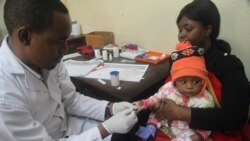As the world races to develop a vaccine for COVID-19, researchers at the Australian National University (ANU) have discovered a vital clue as to why malaria vaccines keep failing, which could potentially change how vaccines for the deadly disease and others are made.
Malaria is a major global killer. But, the parasitic disease which is spread to people by mosquitos does not currently have an effective vaccine.
The ANU experts from the John Curtin School of Medical Research have now found a way for a vaccine to better target the disease. Their finding, published in Cell Host & Microbe today, shows where malaria vaccines are going wrong.
Effective vaccines work by generating antibodies against infectious diseases, allowing the immune system to successfully provide long-term protection. However, current malaria vaccines have been failing to produce enough protection. The easiest diseases to vaccinate against require only small amounts of antibodies for protection. However, complex diseases like malaria and HIV require large amounts of antibody for immunity to develop.












